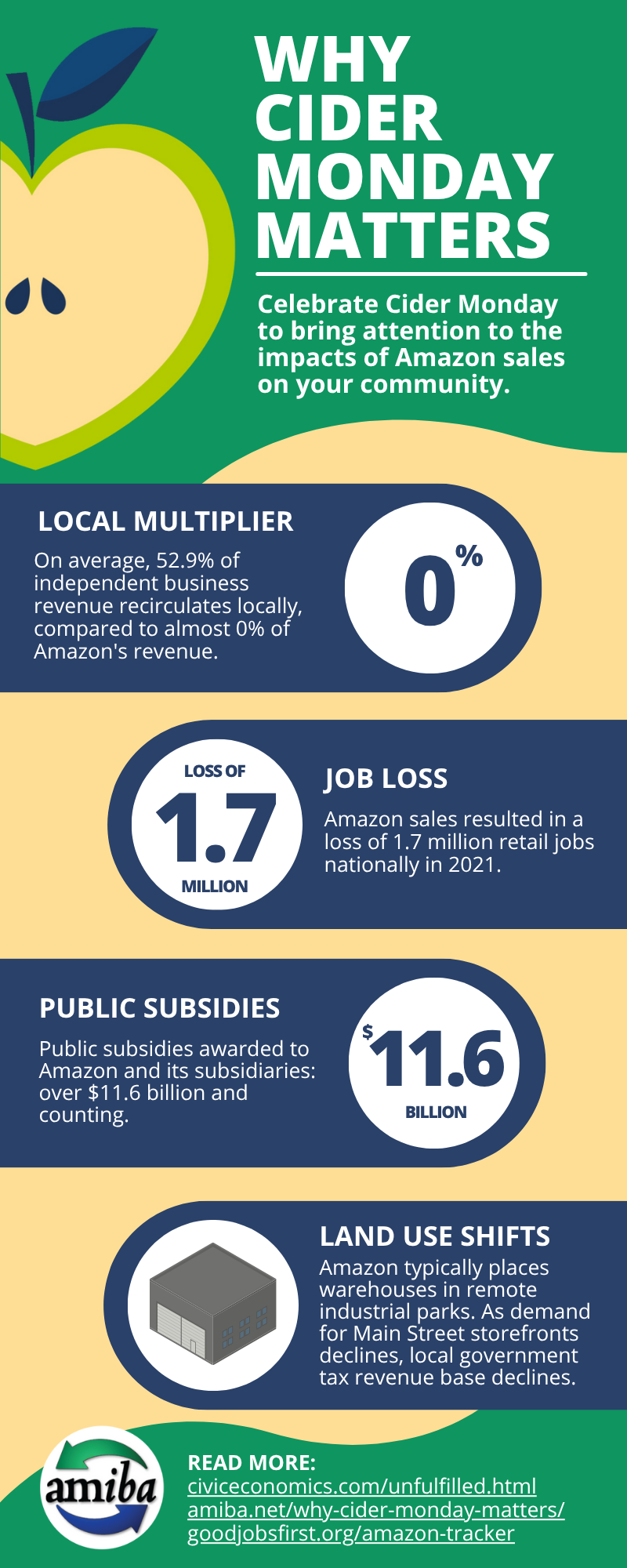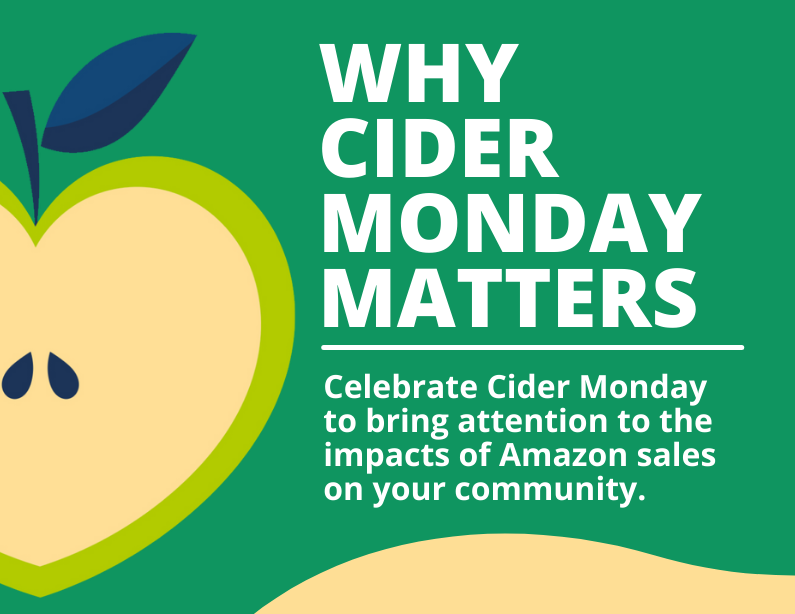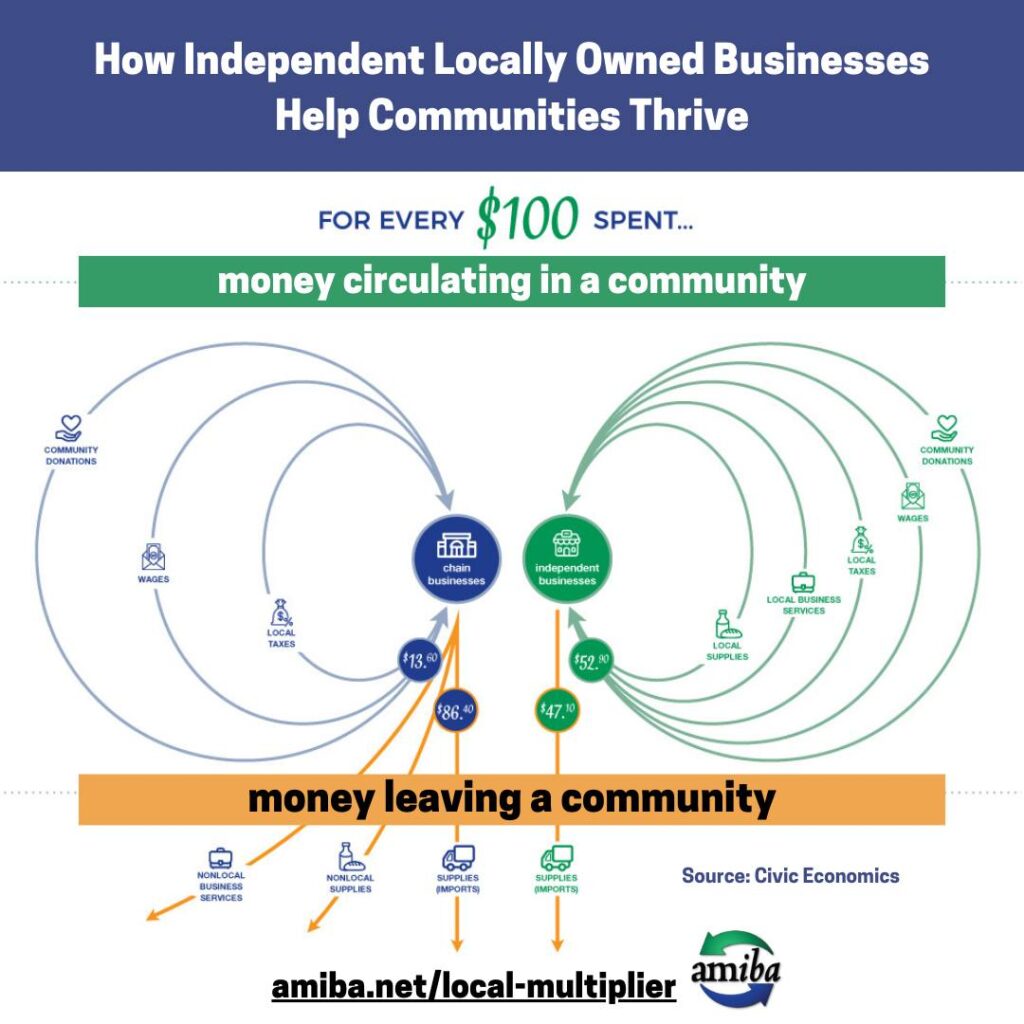Celebrate Cider Monday to raise awareness of the effects of online sales on your community.
 You love buying local, but the next thing you know … CLICK, you purchased that blender online from a business far from your community. It’s so easy! And your one purchase won’t really make a difference… or will it?
You love buying local, but the next thing you know … CLICK, you purchased that blender online from a business far from your community. It’s so easy! And your one purchase won’t really make a difference… or will it?
The Multiplier Effect
Independent retailers return, on average, $53 of every $100 spent at their business back to your local economy. This money recirculates through your community, boosting job growth, charitable giving, and civic engagement. While national chain stores return $14 of every $100 spent, for Amazon, the money returned to the local economy (called the multiplier effect) is close to zero.
“The Multiplier Effect results from the fact that independent locally owned businesses recirculate a far greater percentage of revenue locally compared to absentee-owned businesses. In other words, spending locally creates more local wealth and jobs.”
Unfulfilled
Civic Economics and the American Booksellers Association released a report, Unfulfilled, focusing on the Multiplier Effect and bookselling. Their findings: “Approximately 29% of all revenue at independent bookstores immediately recirculates in the local economy. This translates to a local impact advantage of 109% [over] that of chain competitor Barnes & Noble, and a massive 405% local impact advantage over Amazon.”
Job Growth
To get more specific about jobs, Amazon’s sales resulted in a loss of 1.7 million retail jobs nationally in 2021. Read more: Unfulfilled.
Subsidies
In 2012, Amazon received $8.5 million in subsidies to build a new warehouse in Delaware and $2 million in tax credits to expand its presence in Indiana. Subsidies Awarded to Amazon: Over $11.6 billion and counting!
Land Use
The rise of online shopping, undercutting Main Street retailers, also changes land-use patterns. Amazon warehouses aren’t placed downtown but in remote industrial parks. Civic Economics reported that as demand for Main Street storefronts declines so will city and town governments’ tax revenue base. Read the Prime Numbers report.
“Amazon provides a valuable convenience, one that tens of millions of households (ours included) are willing to pay $99 a year to maximize. We do not believe, though, that Americans yet comprehend the nature of the tradeoffs to come. They may be asked to accept an increase of hundreds of dollars in annual household tax burden to pick up the slack from the stores they visit less often. They may be required to fund redevelopment efforts around struggling commercial districts and failed shopping centers, or to live with the boarded-up storefronts.”
~ Matt Cunningham, Civic Economics.
How can AMIBA inspire you to shop with your values in mind? Are there opportunities for independent businesses to adapt to the pressure of online shopping? Let us know what you think by emailing us at jenrisley@amiba.net.
Remember, every purchase—and click—counts. Please think before you click this Cider Monday and every day!



